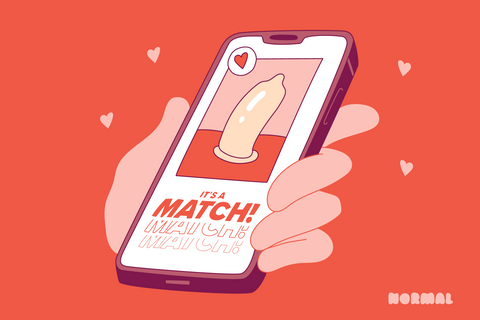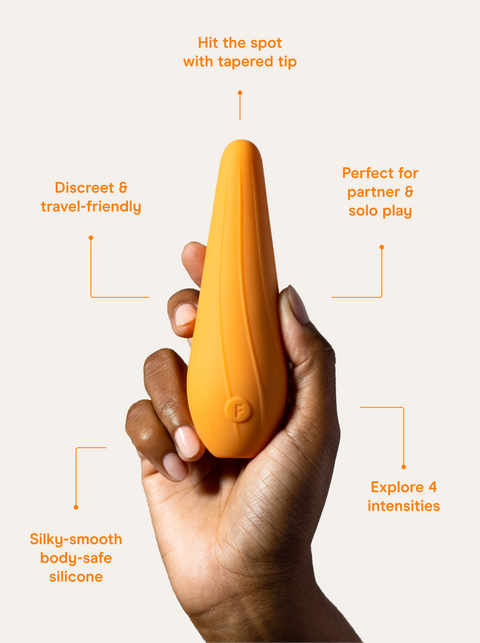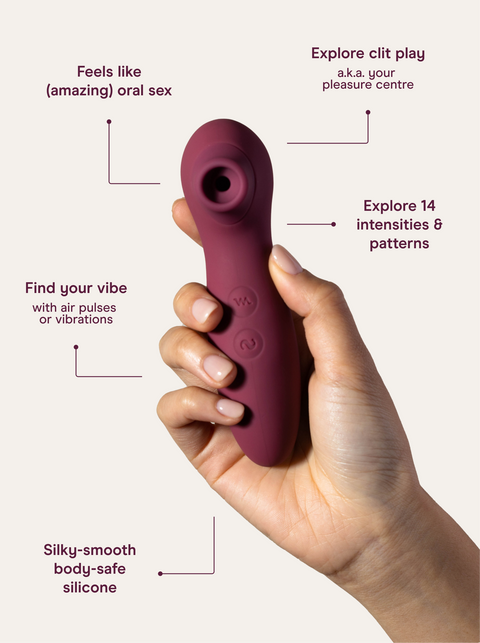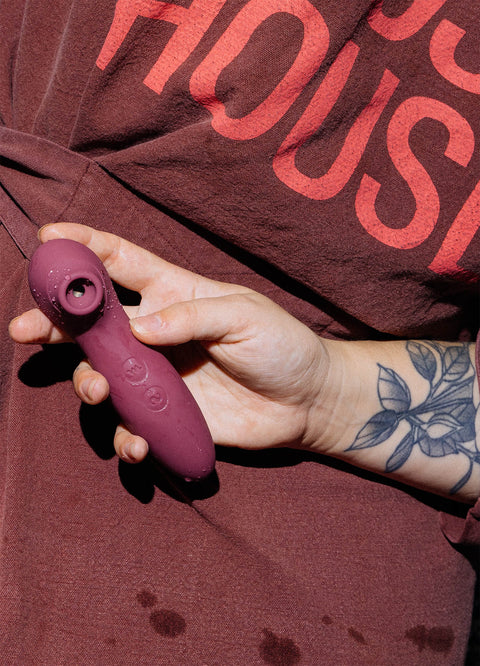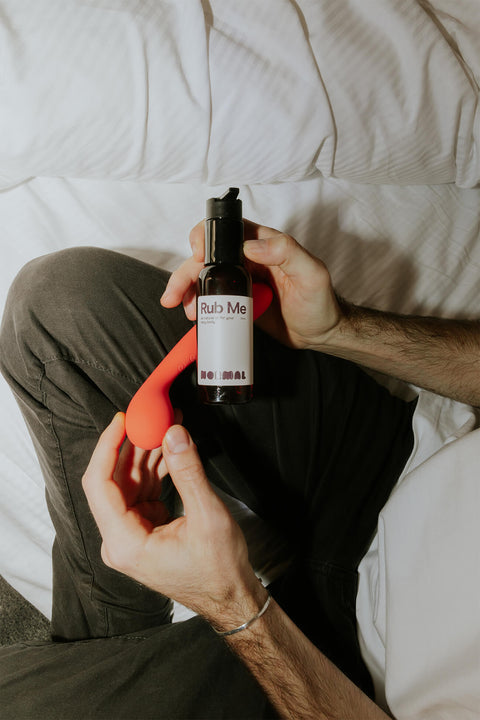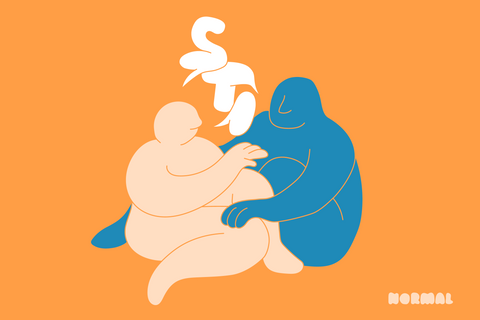Dating and hooking up can be fraught at the best of times—but what about when you’re STI-positive?
Here, we’ll take you through all you need to know about dating with an STI, from tests and treatments to disclosure and contraceptives.
***
To begin with, let’s look at eight of the most common STIs. The World Health Organisation divides these STIs into two groups—curable and incurable. Although ‘incurable’ sounds like a pretty heavy word, it essentially just refers to an STI that a person will need to treat and manage throughout their lives. Some STIs are incurable, but the people who have them are still fully capable of living fun, healthy, and very sexy lives.
The first group of STIs are those that are preventable, treatable, and curable. That means that these STIs can be prevented by using contraception or avoiding certain types of sexual contact; they can be treated using prescribed medications; and they can be cured, meaning that after a person is diagnosed and treated, they will no longer have the STI unless they contract it again. the These STIs include:
- Syphilis
- Chlamydia
- Gonorrhea
- Trichomoniasis
The second group of STIs are those that are preventable and treatable, but not curable. These STIs can be prevented by using contraceptives, getting vaccinated against certain strains of the virus (in the case of HPV and Hepatitis), and avoiding certain types of sexual contact. Someone who has one or more of these STIs may receive ongoing treatment for it to manage its symptoms, or reduce the chances of passing it on to another person. These STIs include:
- Herpes Simplex Virus (HSV), also known as herpes
- Human Papillomavirus (HPV), also known as genital warts
- Hepatitis B
- HIV
If you’ve been diagnosed with syphilis, chlamydia, gonorrhoea, or trichomoniasis, you can receive treatment quickly and easily at your local GP or sexual health clinic. Some STIs can be cured with a quick injection or a once-off tablet, so it’s really worth taking the time to get checked and get treated. In fact, we’d encourage you to do so prior to hooking up with a new partner—and if you have a regular partner, we suggest letting them know about your diagnosis so they can decide if they want to hook up now, or wait until you’ve been treated and cured. (And if you’re not sure how to do that, we’ve written all about it right here!)
If you’ve been diagnosed with an STI that requires long-term treatment and management, like hepatitis, warts, herpes, or HIV, this article is for you—because we’re about to give you the low-down on how to have fun, fulfilling, and very sexy hook-ups with an STI.
***
Consider your community
If you’ve ever felt like the only one who has an STI, you’re not alone—literally. Although some people can experience feelings of uncertainty and isolation after being diagnosed with an STI, there are actually heaps of people out there with the same diagnosis. There are almost 30,000 people in Australia living with HIV, 222,000 living with Hepatitis B, one in eight Australians have genital herpes, and up to 80% of Australians have had HPV at some point in their lives. If you haven’t already, we recommend getting in touch with a group online or IRL to meet and chat with other people who may have received a similar diagnosis to you. The Institute of Many (TIM), for example, offers support and casual meet-ups for people living with HIV. We don’t suggest using these groups to find people to hook up with unless the group is created for that purpose—but we do want to emphasise that finding communities of people who have similar experiences to you can be super affirming.
Online dating? Let’s talk about disclosure
How you talk to potential partners about your STI is completely your choice, but if you’re someone who likes online dating it might be worth thinking about whether you’re comfortable disclosing your STI on the platform. Some dating apps are working to normalise discussions of STIs, so if you want to, it may work to include information about your STI in your dating app profile or early-on in conversations with other users. This can work to let potential partners know about your diagnosis before you chat for the first time, and it might also give people with the same diagnosis an opportunity to say, “Hey, I also have HPV!”. Keep in mind, though, that dating app profiles can be viewed by almost anyone, so if you prefer to be more confidential about your status this may not be an ideal option for you.
Be upfront and honest
Whether you’re talking to a potential partner online or in-person, we always recommend letting them know that you have an STI prior to hooking up. While we do firmly believe that there is absolutely nothing wrong with having an STI, we also believe it’s a really important part of informed consent to let your partner know that you have one. We wrote a whole guide on how to tell your partner that you have an STI, but in short, we recommend being direct and honest. You could tell your partner something like, “Hey, I’ve really enjoyed getting to know you and I’m excited to take the next step with you. But before we do, I want to let you know that I’ve been diagnosed with herpes. I’ve had it for a few years now, and I want to let you know before we hook up.”
Keep contraception in mind
Contraception: it’s not just for preventing pregnancy! While barrier methods of contraception, like condoms, dental dams, and vaginal condoms can be really effective at preventing pregnancy, they can also be highly effective at preventing the transmission of STIs. If you or your partner have an STI, we recommend using barrier methods of contraception to reduce the chances of transmission. We suggest having a conversation with your partner prior to hooking up to discuss what kind of contraception you’d like to use, and what you can do if your chosen method of contraception fails by breaking or tearing.
Be aware of the treatments available
While not all STIs can be totally cured, many are treatable—and some treatments are really, really effective. Let’s look at HIV, for example: treatments are available that can reduce a person’s viral load, or the amount of the virus in their body, to an undetectable level. Someone with an undetectable viral load can not pass HIV on to their partner or partners, which is a pretty huge development and an indication of how effective some STI treatments are these days. No matter what STI you have, we recommend having a chat to your doctor about the latest treatments and discussing what’s right for you. If you have a long-term partner, it might be worth including them in these discussions if you feel comfortable doing so—and if you’re hooking up with new partners, you can choose to let them know about how you’re treating your STI.
No matter what, prioritise self-care
Dating can be exhausting for anyone, and dating with an STI can be even more so because sometimes you can be confronted with people’s outdated and incorrect assumptions about STIs and the people who have them. Make sure to keep some time for yourself to do what you love outside of the dating world, whether it’s hanging out with friends, participating in hobbies, or just moving your body in a way that feels good for you. It may also be beneficial to keep on top of your health by having regular check-ups with a trusted GP, getting tested for other STIs at your local clinic, and staying up-to-date on recent developments in the world of STI testing and treatments. Remember that no matter what, your STI is only a tiny part of who you are—and your full self deserves love, care, and compassion.

